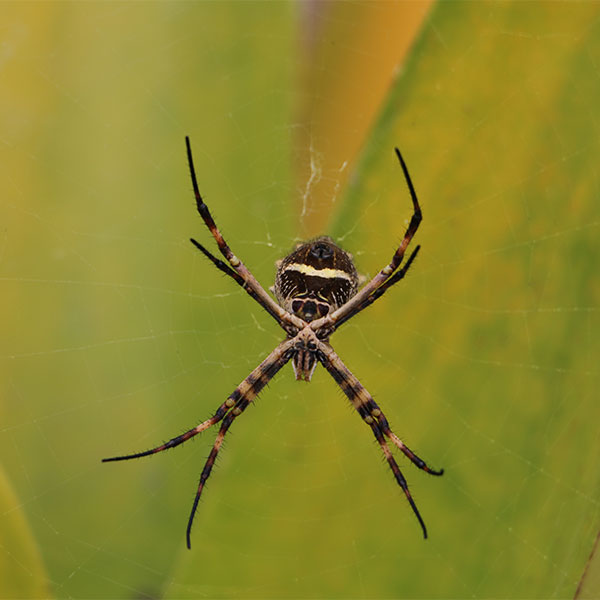Biotechnology is Everywhere: Biotechnology is not only the future. It is the present.

What does stone-washed jeans, vitamins, cosmetics or possibilities for bioremediation have in common?
The answer is simple. They all have a biotechnology story behind them.
Biotechnology is not only the future. It is the present. Something Spiros Agathos, Dean of the School of Life Sciences and Biotechnology, firmly believes in. “It is probably one of the few very clean technologies, with which you can accomplish the dual goal of diminishing pollution and reverse the accumulation of greenhouse gases, while creating valuable products and processes without using fossil fuels”.
Besides his work as dean in Yachay Tech, Spiros Agathos leads a group of scientists at the Biotechnology Laboratory at the Catholic University of Louvain (Belgium). His work focuses on a variety of subjects such as bioremediation through enzymes and microalgae or production of pharmaceuticals and vaccines using animal cell biotechnology. This laboratory includes bioreactors, upstream equipment, centrifuges, piping, filters, among others; useful tools for engineers to make the transition of this enabling technology from the laboratory into the industry. The laboratory’s work serves to make scientific discoveries accessible for everyone. “Clean biotechnology, particularly biochemical or biological engineering have a basic point in common: the bioreactor”, Agathos explains. “What we do is test the proof of principle on its way to becoming an actual industrial process”.
This laboratory is very well known for using insect cells to create proteins for therapy or candidate vaccines. Decades ago the creation of the common vaccine to fight diseases such as smallpox was considered a complete innovation. It contained an inactivated virus resembling the real disease agents that were introduced in the body to stimulate its immune system. Something considered groundbreaking at the time. Nowadays common vaccines are even questioned and we find ourselves at another turning point in innovation to give way to new alternatives such as sugar-engrafted proteins or virus-like particles that can be generated by approaches such as animal cell biotechnology.
One of the uses for animal cell biotechnology (cultivation of animal cells in well-controlled vessels: bioreactors) is the production of vaccines against the common flu. Spiros Agathos’ team has been working on proposing a serum-free media to be used in new vaccine models. “We make sure that the new nutritional media for cultivating cells is serum and animal free; which means that the used compounds don’t come from animals but from plants with very clean processes”.
Biotechnology is aiding in the creation of possible new vaccine models free of animal or human serum which could become a contaminating agent. “We provide a crucial step between what biologists do in the laboratory and what the pharmaceutical industry does in a very large scale; and this is what we do as biological engineers by using suitably designed bioreactors and the appropriate media”, Agathos says.
Biotechnology has become essential for the development of production platforms for medicines as well as other products that make use of fine chemicals such as cosmetics, or for the innovation of the food industry. Biotechnology produces possibilities to create multivitamins or more productive and disease-resistant plants for agriculture, it aids in diminishing the toxicity of compounds through synthetic biotechnology and deals with the remediation of toxic chemicals through environmental biotechnology. Even the enzymes that are often used to give our favorite blue jeans a “worn” look are obtained with biotechnological means for example by cultivating tiny fungi in bioreactors.
With biotechnology you can make biofuels like ethanol and butanol, not anymore from petroleum and its refineries, but from waste biomass. Thanks to biotechnology procedures applied to the remnants of wheat (straw) after their harvest, a particular type of ethanol can be created. By breaking down with enzymes, the cellulose or hemicellulose of this waste biomass into sugars (glucose, xylose) and putting this syrup through a fermentation process, a type of biofuel is achieved.
This technology is already used in countries like Brazil where for the last 20 years the production of biofuels has become a common part of their economic activity. In North America bioethanol is made from corn harvest, while in places like Russia and Scandinavia wood biomass is transformed into cellulose ethanol thanks to the use of biotechnology. Gases like hydrogen and methane are being used in places like Belgium, Finland and Norway to power their buses. By 2015 renewable fuels in Sweden made up two thirds of the total fuel consumption of buses for public transportation.
“We can go a step further and use special microorganisms to make ethanol for transportation-efficient-fuels”, Agathos explains. “With biotechnology we take advantage of what is now a problem that accumulates more waste and transforms it into fuel that is cleanly burned”. Bioremediation of municipal solid wastes through the use of such a green approach will contribute to a much cleaner technology.
There are very different branches of biotechnology, depending on the area of application, but the principles are the same. “You can manipulate cells, study their metabolism and put them into a bioreactor or photobioreactor. You can use biotechnology to clean up soil and quantitatively and qualitatively ameliorate its condition,”, he explains. A fascinating way to provide practical solutions thanks to science and technology.